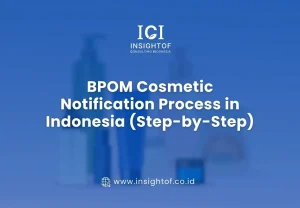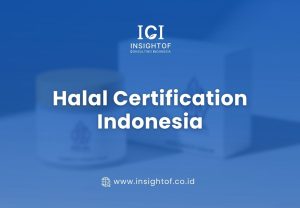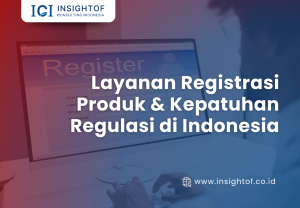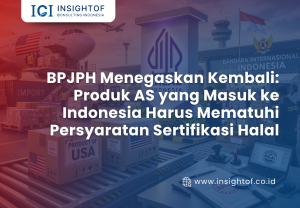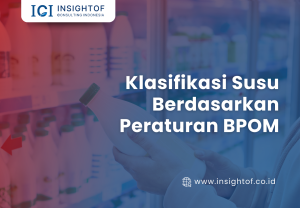Introduction
Halal cosmetics are personal care and beauty products formulated and manufactured in compliance with Islamic law. For manufacturers and importers targeting Muslim consumers—especially in Indonesia, the world’s largest Muslim-majority market—halal certification is increasingly essential to access retailers, marketplaces, and export opportunities. This guide explains what halal cosmetics mean, the Indonesian regulatory framework, why halal certification matters, the step-by-step certification process, and how INSIGHTOF can support your halal journey.
What does “Halal Cosmetics” mean?
- Definition: Halal cosmetics are products whose ingredients, production processes, packaging, and handling do not contain or involve haram (forbidden) substances and are free from contamination by haram sources.
- Key concerns include:
- Animal-derived ingredients (e.g., gelatin, certain fats, collagen)
- Alcohol used as a processing or preservation agent
- Cross-contamination during production and storage
- Improper labeling or packaging
- The scope of halal cosmetics goes beyond ingredients. It covers:
- Raw materials sourcing
- Production facilities and sanitation
- Supply chain integrity
- Halal cosmetic labeling
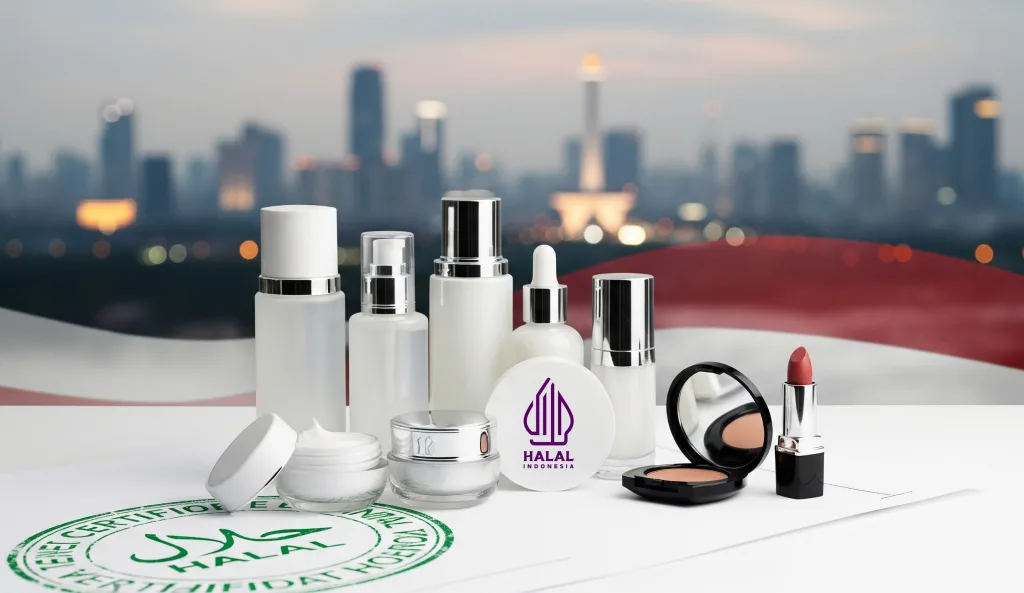
Halal Certification Stakeholders
The three main parties involved in the halal certification system in Indonesia are:
- BPJPH (Halal Product Assurance Organizing Agency): The government agency overseeing halal product assurance administration, including registration submissions and oversight.
- MUI (Majelis Ulama Indonesia): Through its halal certification bodies (LPPOM MUI and appointed LPHs), MUI issues halal certificates or issues opinions used in the certification process.
- LPH (Lembaga Pemeriksa Halal): Halal Inspection Agency (conducts audits and inspections).
Note: Specific procedures, fees, and timelines can vary depending on product category, whether the product is domestic or imported, and the chosen LPH/certification body.
Why halal certification matters for cosmetics
- Market access & trust: Official halal certification opens doors to mainstream retailers, e-commerce marketplaces, and export markets. It signals trust to Muslim consumers.
- Competitive advantage: A halal label differentiates products amid rising consumer demand for ethical, transparent ingredients.
- Regulatory compliance: Avoids legal or commercial penalties where halal certification is required for sale.
- Supply-chain clarity: Certification enforces better ingredient traceability, helping detect and prevent contamination and quality issues.
- Brand reputation: Halal compliance often aligns with broader quality and safety standards, improving brand perception among non-Muslim consumers as well.
Step-by-step halal certification process for cosmetics
The following is a typical flow for securing halal certification in Indonesia. Exact steps and required documents may vary by LPH and product.
1. Pre-assessment & ingredient review
- Audit raw materials for animal-derived components, alcohol usage, and supplier documentation.
- Compile material safety data sheets (MSDS) and full ingredient lists (INCI).
2. Prepare documentation
Common required documents:
- Product formulation and full ingredient list (with supplier declarations)
- Manufacturing process flowchart and SOPs
- Packaging material details
- Quality control records and GMP documentation
- Distributor/importer business licenses (for imported products)
- Halal control procedures within the factory
3. Application submission to BPJPH / LPH
- Submit the application dossier through the official portal or via the selected LPH (certifying body).
- Pay applicable administrative fees.
4. On-site audit (if required)
- Auditor inspects the production facility, raw material storage, sanitation procedures, segregation, and cross-contamination controls.
- Corrective actions may be requested; prepare documented CAPA (corrective and preventive actions).
5. Review and certification decision
- LPH reviews the dossier and audit reports, issues a halal opinion or certificate upon compliance.
- BPJPH endorsement/registration may be required depending on the route.
6. Labeling and ongoing compliance
- Once certified, apply the authorized halal mark per regulations.
- Maintain records, undergo periodic surveillance audits, and reapply before certificate expiry.
Common pitfalls and tips for a smooth certification
- Incomplete supplier declarations: ensure every raw material has a clear halal/non-halal statement.
- Hidden cross-contamination: review shared equipment, cleaning validation, and storage arrangements.
- Ambiguous alcohol usage: document the purpose, type, and processing residuals for any alcohol used.
- Insufficient documentation of outsourced processes: third-party manufacturing requires clear contracts and control measures.
- Late corrective actions: respond quickly and comprehensively to audit findings.
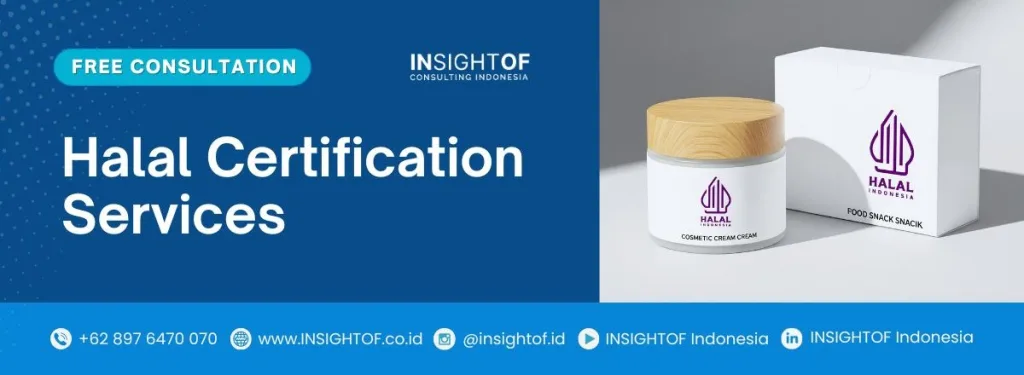
FAQ
Are halal cosmetics the same as natural or organic cosmetics?
No. Halal refers to permissibility under Islamic law (ingredients and processes), while natural/organic relate to the sourcing and processing methods. They can overlap but are distinct claims.
Do imported cosmetics need halal certification in Indonesia?
Yes. Starting October 2026, halal certification will be mandatory for imported cosmetics sold in Indonesia, in line with the Halal Product Assurance regulations.
Is halal certification for cosmetics linked to BPOM registration?
Yes. BPOM registration (cosmetic notification) remains mandatory. Halal certification is an additional requirement. Both approvals are needed for lawful market distribution.
Which authority issues halal certification in Indonesia?
Halal certification is regulated by BPJPH (Badan Penyelenggara Jaminan Produk Halal), with inspections conducted by LPH and fatwa issuance by MUI.
Conclusion
With halal cosmetics becoming mandatory in Indonesia by 2026, now is the time for manufacturers and importers to prepare. Certification ensures regulatory compliance, builds consumer trust, and secures market access.
📩 Contact INSIGHTOF today for a free preliminary assessment of your cosmetic dossier and a customized roadmap to halal certification success.
Do you need assistance registering your product in Indonesia?
Contact us today to start your registration process.
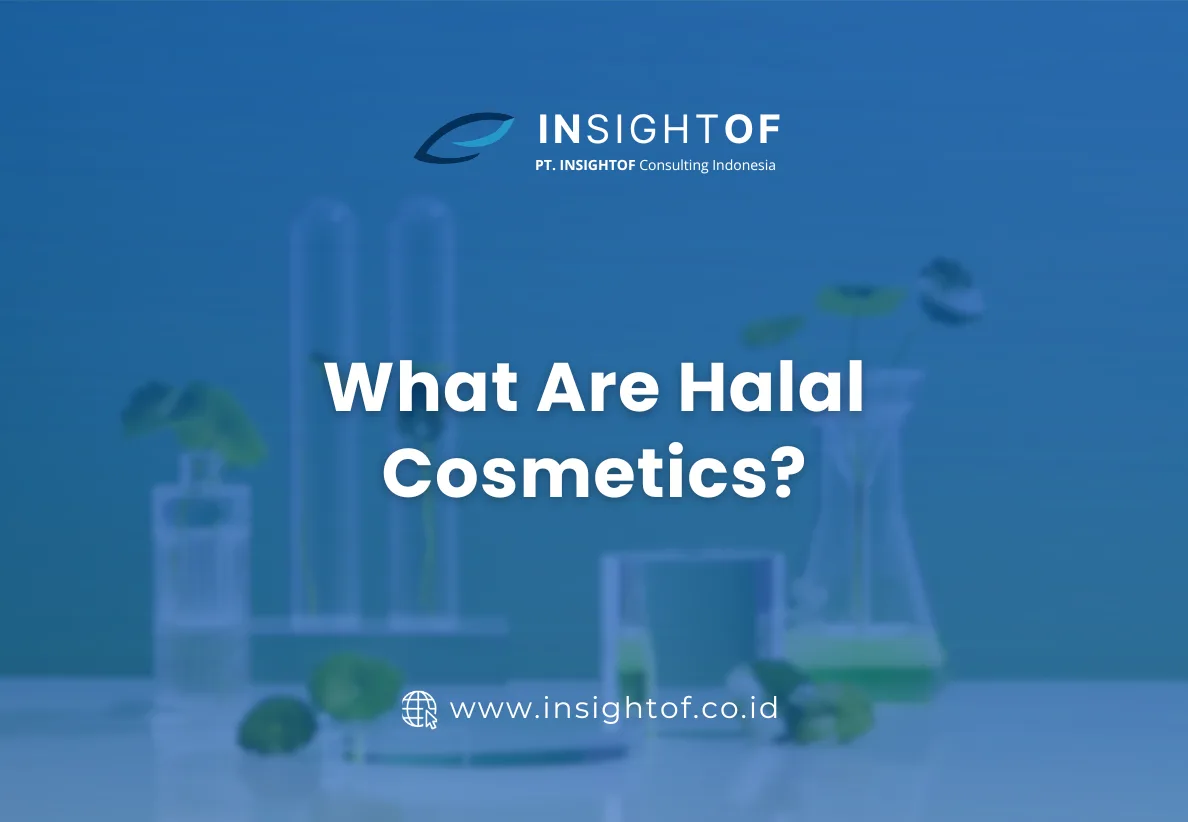


.svg/240px-YouTube_social_red_squircle_(2017).svg.png)
